By Houria Chouhab
HAF Volunteer
On the 10th of May, Dr. Yossef Ben-Meir, HAF’s President, and the HAF team visited two villages in the High Atlas mountains not far from the Red City: Talaint and Anamer, which are two villages of the Setti Fatma Commune. HAF’s team had the pleasure to be accompanied by Aysha Follard, Programs Manager at World Challenge UK. Aysha’s purpose of visiting Anamer was to identify local Moroccan communities where British youth can volunteer to make meaningful contributions.
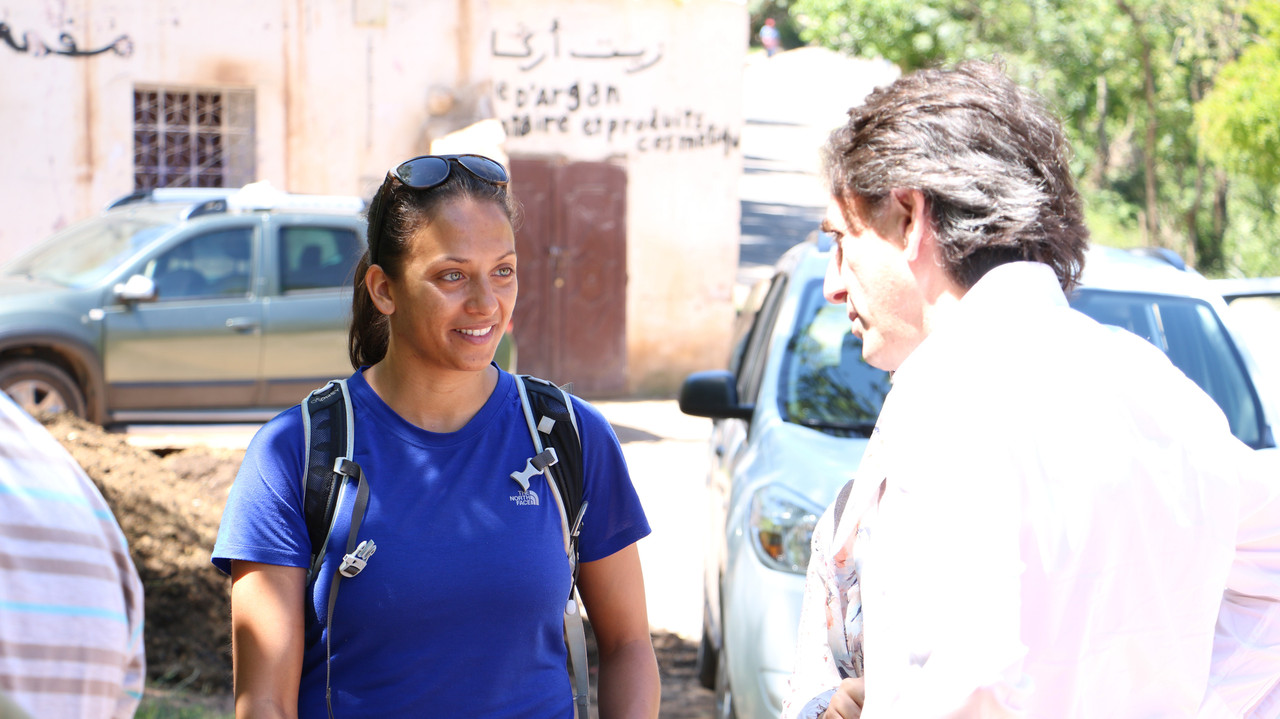
Our first stop was in Talaint, where we conducted the last women’s empowerment workshop (for more insight, read our blog “It rains empowerment in Talaint”). When I stepped out of the car, the first thing that grabbed my attention was three men making Shbakia (Moroccan pastry sweets) in a roadside café. In our culture, it is known that Shbakia is made by women and, thus, to see men making it in a rural area was surprising. One of the men works alongside his wife in the café-restaurant. He is an example of an empathetic and open-minded husband who believes in the values of cooperation within the institution of marriage. He exuberated kindness and peace, making it irresistible to buy their sweets as a reward for his infinite amiability and, of course, for our families during Ramadan.
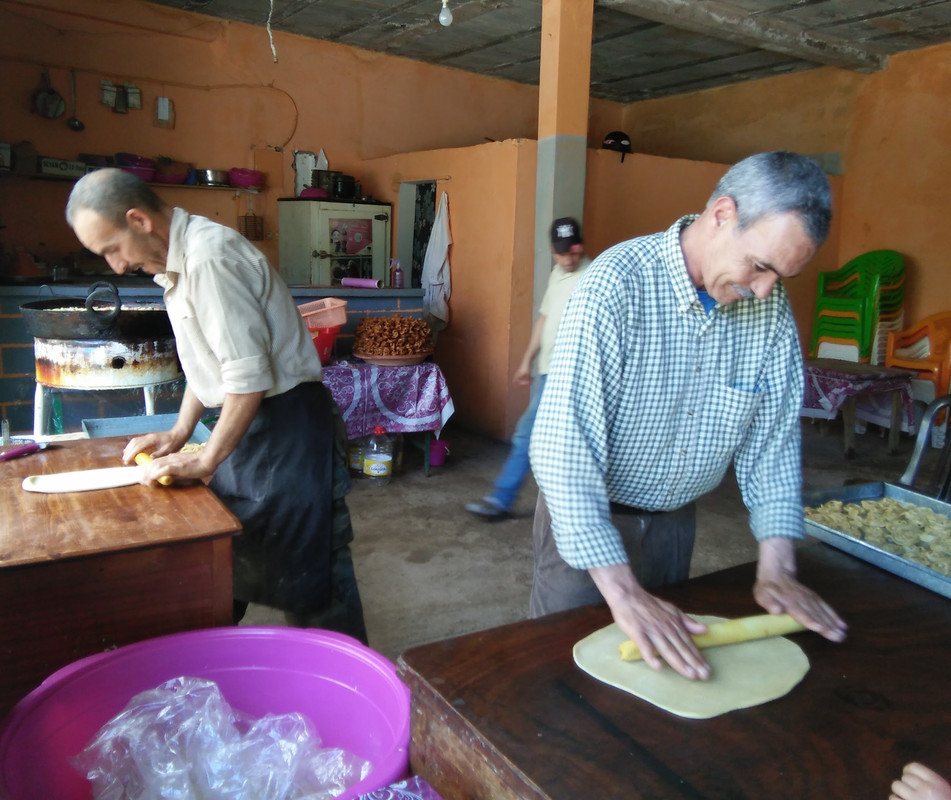
We then met with a group of men from the community. Abdeljalil, HAF’s Field Coordinator, was waiting with them and discussed agriculture challenges in their region. Notably, from May until the end of summer, most women in this region spend their time at the Làazib (humble summer homes), shepherds stone huts, and walled enclosures for livestock, all located at high elevations in the mountains and which take hours to reach. These mountain slopes serve as summer pasture-lands belonging to the communities.
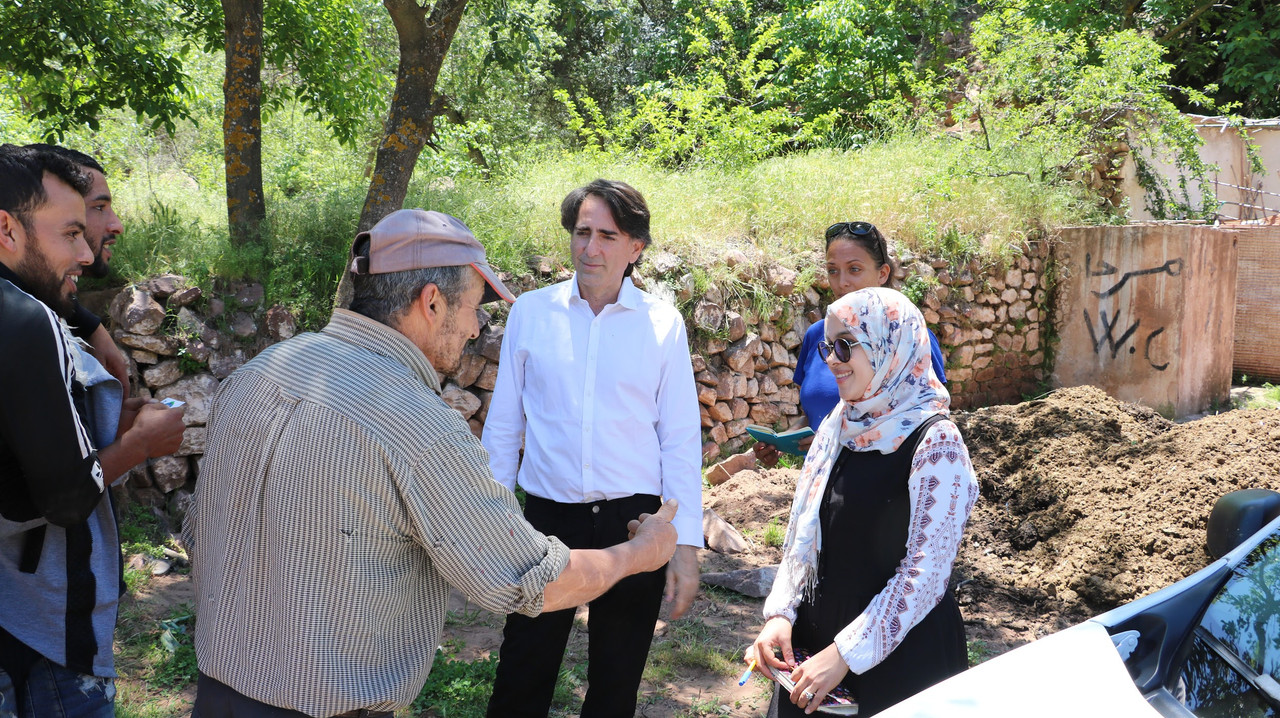
These men have previously benefited from planting 4,000 plants of almond, olive, and carob trees in their agricultural terraces. Their only and current challenge is irrigation; they have a source of water, but they lack the pipes to pass the water to the trees. To buy these necessary pipes, they need to provide 30,000 DH, but unfortunately, they cannot afford it. “I can hardly provide my family with food, let alone contributing to get the needed amount of money to buy the pipes,” one man said
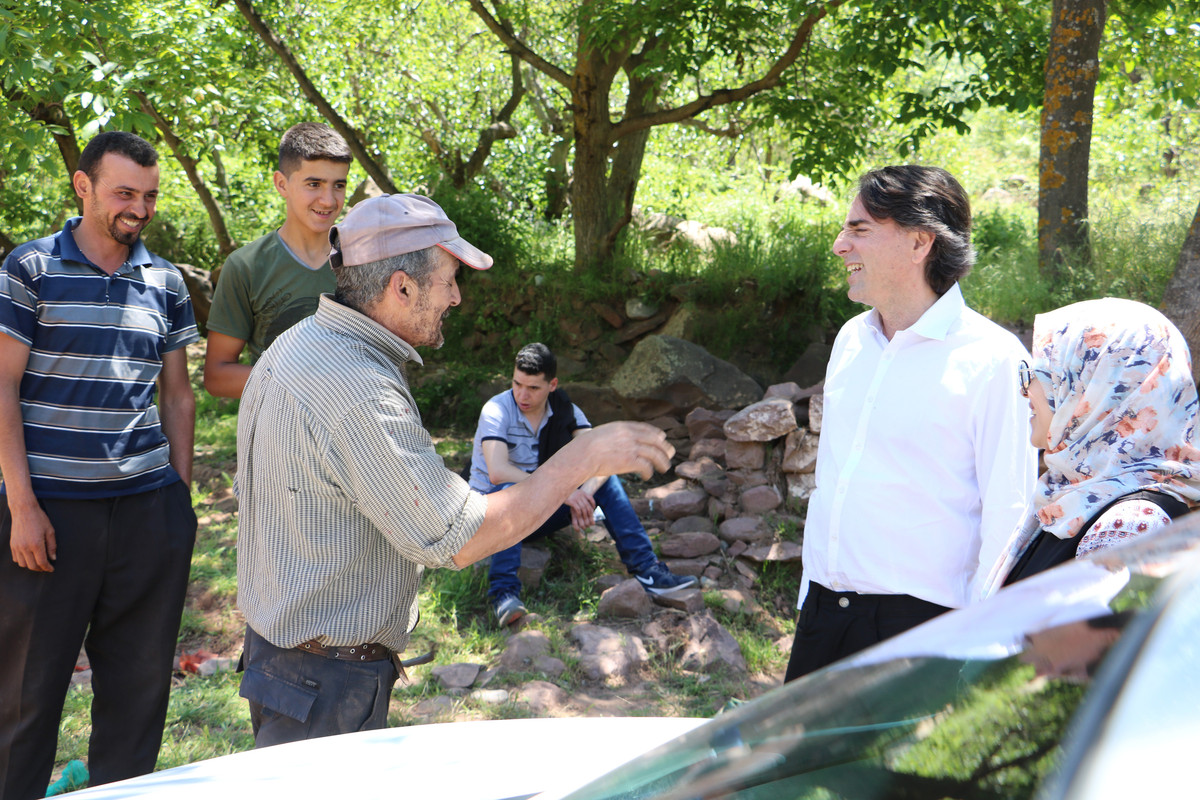
Water is essential for the life of these trees. In order to preserve plant life, the local population collects water from the spring using animals as a means of transportation. It is a tiring job to do every day, but the joy when harvesting the crops makes them forget the pain of the process.
Before moving to the next step, the men asked Mr. Ben-Meir to provide them with more carob and olive trees to plant in nearby land of which everybody has a share. Although the trees take years to grow, they want younger generations to have local natural resources to make use of. It is interesting that while these men have needs in the present, they are also thoughtful of the needs that will arise in the future.
In this visit, HAF provided the men with fig and carob trees. Youth, adults, and elderly men all participated in planting the trees.
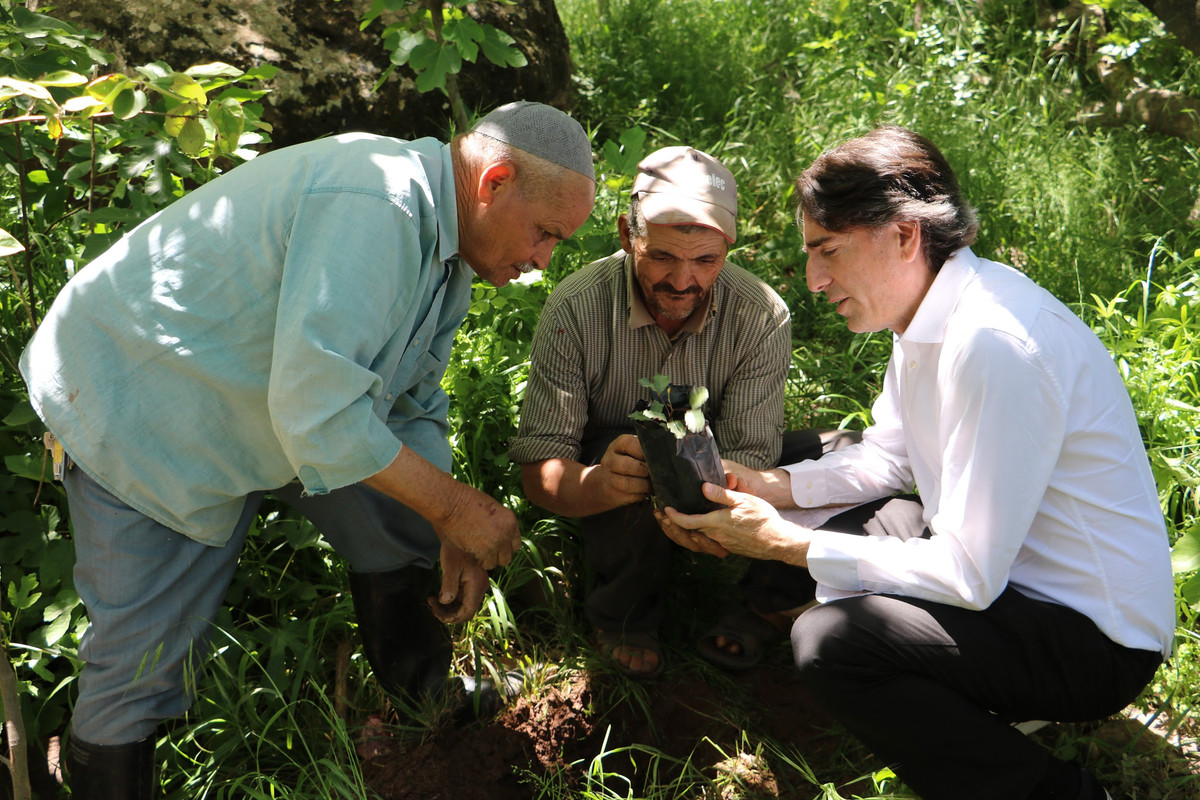
It is important to have many development programmes in the same area, for it allows it to improve more rapidly and bring about qualitative outcomes. Talaint’s population benefited from both women’s empowerment workshops and organic agriculture initiatives, and the best is yet to come.
After the trees were planted, we met with a newly established women’s cooperative in Anamer village. This cooperative is the outcome of HAF’s women’s empowerment “Imagine” workshop that was conducted in the region one year ago for 30 beneficiaries. It consists of eight members who make traditional carpets. Eight women out of the 30 who attended Imagine were able to successfully establish their cooperative. Their number may seem small, but it is a huge step for these women to get out of their houses and spend the day working for their cooperative. Men in this area can be very strict regarding females’ agency in the community. For example, girls are not allowed to pursue their studies and are likely to marry under the age of 18; when they are married, they are not allowed to go anywhere without their husbands. This is the common ideology of men in the community, however, fortunately, it is gradually disappearing among the young adults who believe in equality between the two sexes, and who seek to change cultural gender norms in Anammer.
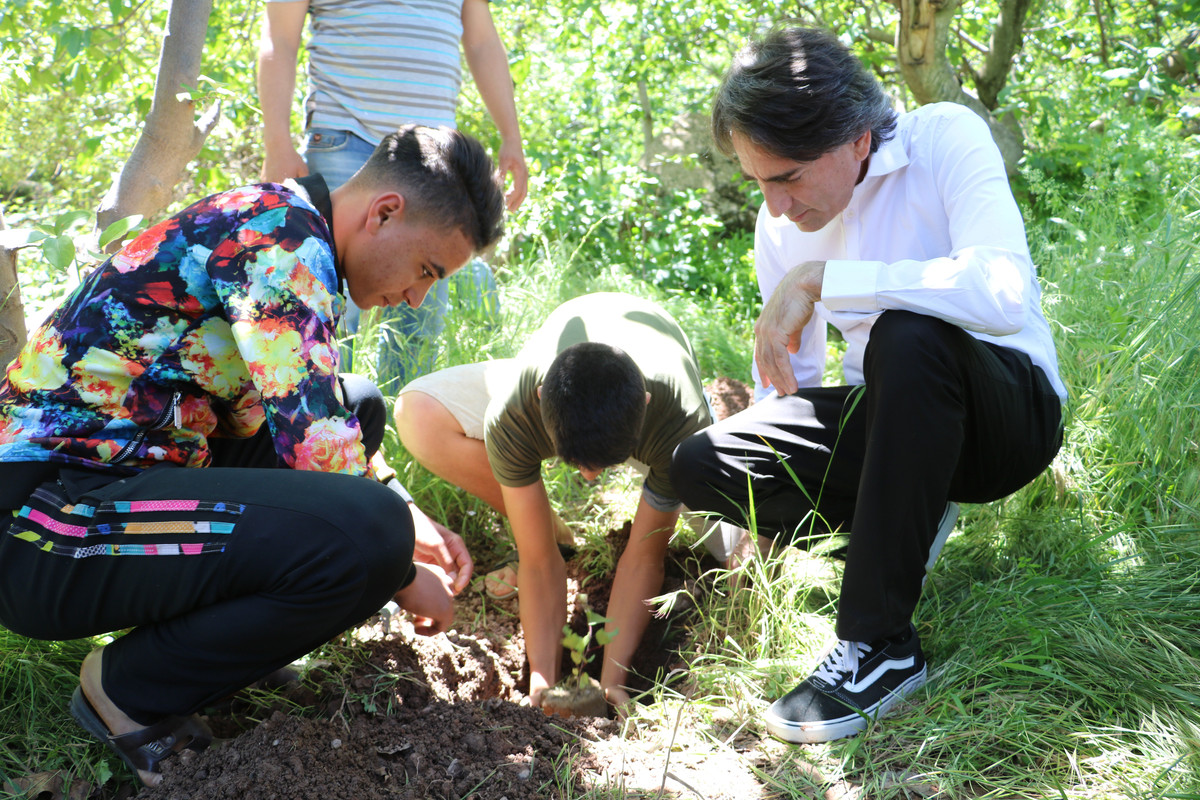
As a young woman who enjoys learning from others’ experiences in life, it was a pleasure to talk to these women and listen to their wise words as well as to understand how they spend their daily lives in Anamer. Additionally, I it was a pleasure to talk to girls who were younger than me and to get to know their humble ambitions. These are some examples of the good things one can experience with HAF: spending time with people from different walks of life and learning how to appreciate what you have.
Happy Ramadan!
